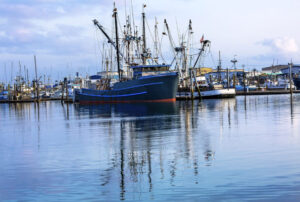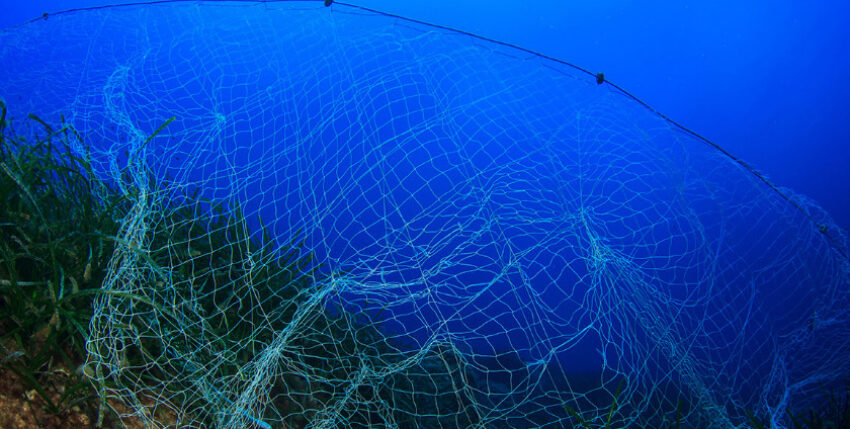Plastic pollution of the oceans was a focus of the recent UN Ocean Conference, which issued a statement in support of an earlier decision by the UN Environment Assembly to begin negotiations on a global plastics treaty.
It is estimated that around 4.5 million fishing vessels operating in national and international waters are responsible for half of the plastic pollution in the oceans. This figure cannot be substantiated by other sources, as many fishing vessels are not registered. Recent research suggests that industrial fishing gear alone contributes more than 100 million pounds of plastic to the oceans. And by 2050, there could be more plastic than fish in the sea.
Plastic waste from fishing vessels includes lost and deliberately abandoned fishing gear such as nets, traps, floats, boxes and fish aggregating devices (FADs).
Plastic has been found in the deepest parts of the ocean in the Mariana Trench and in remote regions such as Henderson Island in the Pitcairn Group. Lost or abandoned fishing gear can lead to "ghost fishing", where nets, FADs and other gear continue to "fish" for decades. Other impacts of ocean plastic pollution include entanglement, ingestion, transmission of invasive species and toxins, hazards to shipping and beach pollution.
In contrast to land-based sources of plastic pollution, for which there are only weak global regulations, international regulations for plastic pollution from ships are solid, at least on paper.
Two main regulations have been developed within the framework of the International Maritime Organisation (IMO). One is the London Discharge Regulation, which regulates the intentional discharge of plastic waste from ships and platforms into the sea. The other is the International Convention for the Prevention of Pollution from Ships (MARPOL), which regulates both the intentional and unintentional discharge of plastics from ships.
Under the London Dumping Scheme, plastic waste, including fishing nets and FADs, may not be intentionally dumped or discarded by ships in any marine area outside the States' internal waters. Whilst there is an exemption for the disposal of material arising from the 'normal' operation of ships, this cannot be said to include the deliberate dumping of plastic waste as this causes harm to marine ecosystems.

While the London Scheme does not apply to the accidental loss of fishing gear, the MARPOL Convention prohibits the dumping of plastics, including nets, FADs and other fishing gear, into the sea, both intentionally and unintentionally.
However, there is a loophole: the ban does not apply to fishing vessels if "all reasonable precautions have been taken to prevent such loss" or if the introduction of fishing gear is necessary for the protection of the environment. The guidelines adopted in 2017 provide some guidance on what is meant by reasonable precautions - for example, the proper sorting and collection of plastic waste so that it does not go overboard.
Plastic pollution has also become an issue for regional fisheries organisations (RFMOs). They are working together with the Food and Agriculture Organisation of the United Nations on various initiatives to minimise the loss of fishing gear and the impact of ghost fishing.
The problem with these regulations is the lack of enforcement. It is difficult to monitor and enforce the ban on plastic pollution from ships on the high seas. Flag states often lack the incentive to do so.
Practical measures such as the labelling of fishing gear and certain stowage techniques to reduce waste are often contained in non-binding guidelines rather than binding regulations. And there are insufficient incentives to encourage vessels to retrieve abandoned fishing gear they encounter while fishing.
Source: Karen Scott, Conversation, gcaptain







